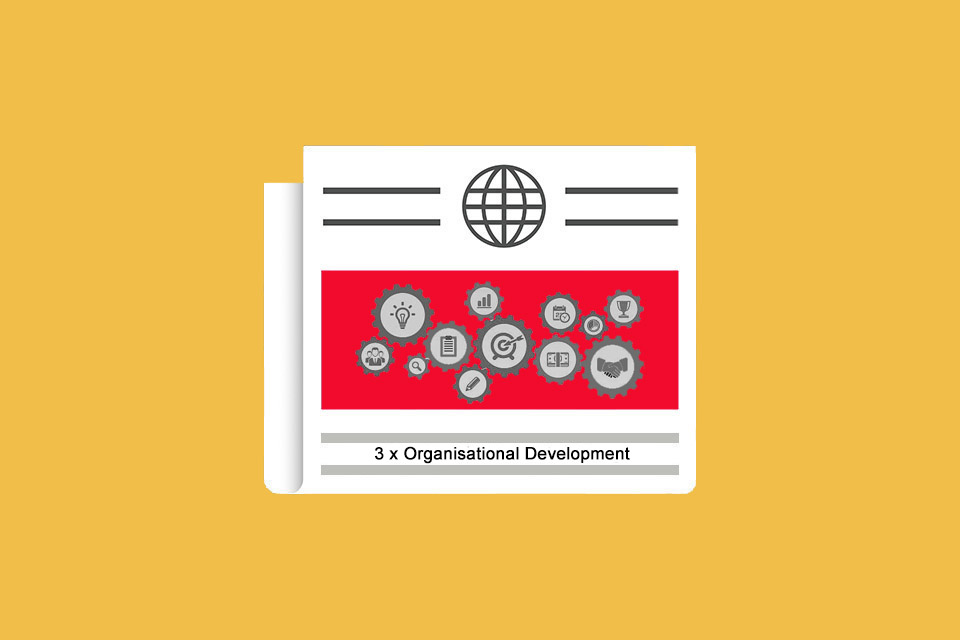Three questions about effectuation
Expand the table of contents
How do you prevent ‘taking advantage of coincidences’ from turning into aimless dithering?
Doesn’t the principle of ‘affordable losses’ contradict economic responsibility?
Bonus question: Is effectuation really new, or is it just old wine in new bottles?
A conversation with Heiko Bartlog about effectuation
Effectuation is not a new superfood for start-ups. Nor is it the next big thing being touted by management gurus. In fact, effectuation is first and foremost observed behavior: it describes how experienced and successful entrepreneurs act and make decisions when the future is unpredictable – in other words, in most real-life decision-making situations.
Based on empirical research findings, Saras Sarasvathy has described a concrete decision-making approach for situations in which classic planning logic reaches its limits.
Effectuation reverses the usual causal chain: it is not first the goal, then the plan, then the implementation, but first the resources, then the partnerships, then the next sensible step.
The future cannot be planned, but it can be shaped with what I have, what I am willing to risk and with those who actively participate.
But is this also practical? Or just a clever reframing of gut feeling and luck? Time for three critical questions for Heiko Bartlog, expert in effectuation and ‘host for co-creation’.
Does effectuation make people biased due to optimism?
Heiko Bartlog: To my knowledge, this question was actually hotly debated in Brazil, accompanied by serious accusations. Effectuation was said to fuel excessive optimism. Those who think ‘just go for it’ easily lose sight of the risks. Instead of careful consideration, they rush into action. And indeed, the narrative of the courageous ‘doer’ or the fearless “doer” who just gets started can be dazzling.
In recent years, the saying ‘doing is like wanting, only more extreme’ has probably been booming in every organisation – if not, it surely will be!
But that is a misunderstanding. Effectuation is not a plea for naivety, but for controlled risk-taking. The central concept is ‘affordable loss’: it is not the expected gain that determines the decision, because in an uncertain future this is often pure speculation. The seemingly objective derivation is then a waste of precious resources. The decisive factor is the limit of what I can afford to lose in order to still be able to act even in the worst case scenario. This may sound banal, but it can be an extremely effective change of perspective.
Classic business plans and profitability forecasts for projects calculate ROI and market shares. And let’s be honest: how often do these forecasts actually come true? (Assuming they are ever checked afterwards.)
Effectuation asks instead: what would be a useful next step? How far can I go without having to sell my house? This way of thinking does not limit risk through apparent control, but through consciously set limits.
In a casino, this tactic seems logical, even though we know all possible outcomes and their probabilities a priori. Wouldn’t it be wonderful if economic reality were so predictable?
So does effectuation fuel optimism? Yes, and with an airbag! And it is more realistic than believing in precise five-year plans in a highly dynamic environment.
How do you prevent ‘taking advantage of coincidences’ from turning into aimless dithering?
Heiko Bartlog: That’s another common objection: surprises are not automatically opportunities. That’s true, of course – just as it’s true that surprises don’t always pose a threat.
In my view, the truth lies – as so often and so boringly – in the middle: if I see everything unplanned as a direct threat to my planned path, then this attitude will most likely prevent me from recognising opportunities that arise along the way.
In my opinion, risk management is often misunderstood: any serious approach also mentions opportunities, but the title contains the word ‘risk’ and subtly directs our focus to the dangers. Effectuation describes how successful entrepreneurs tend to focus on opportunities rather than risks when faced with uncertainty. This is important in order to get started in the first place.
And the more the undertaking progresses, the more I learn about the market and the clearer my direction becomes, the more I pay attention to potential risks.
Because the other extreme would be just as absurd: if I constantly react to everything that happens, I quickly lose sight of the big picture and run the risk of going round in circles and never achieving a finished result.
Here, too, the difference lies in the attitude. Effectuation is not aimless reaction to what happens, but active shaping of what happens (unexpectedly). Surprises are not detours, but impulses for the next step – provided they are integrated in a meaningful way.
It is important that actions always take place within a frame of reference:
- I know my orientation, based on my reason for acting and the options currently available to me.
- I know my resources (bird in hand).
- I constantly check whether what I am doing remains within the scope of my ‘affordable losses’.
Under these conditions, I can view circumstances and surprises neutrally and use them to simplify my decision about the next steps: Is this a threat to our undertaking? Then I avoid it! Does this open up an opportunity? Then I seize it! Always within my own orientation, with the available resources (and partners) and within the ‘affordable commitment’.
In other words, I remain in control (pilot in the plane). Effectuation is not about letting yourself be carried by the wind. It is about using gusts of wind to move forward – with a clear view of your resources, the context and your crew (your partners).
Incidentally, agile approaches such as Lean Startup, Design Thinking and Scrum are often criticised in a similar way. There, too, not every iteration, every ‘pivot’ makes sense. The decisive factor is always the quality of reflection and the clarity with which new insights are translated into the next action.
Doesn’t the principle of ‘affordable losses’ contradict economic responsibility?
Heiko Bartlog: Especially in organisations with limited scope – such as NGOs, schools or small initiatives – ‘affordable loss’ sounds like a cynical luxury. But what if no loss is affordable? If the smallest mistake would have fatal consequences?
Effectuation does not advocate harakiri experiments. On the contrary, it encourages trying out new things in a controlled manner and in small steps, especially in precarious contexts. ‘What can we risk without getting into trouble?’ is an extremely responsible question – often even the smarter one compared to the classic ‘What brings the most benefit?’
And: affordable loss does not only refer to money. It is also about time, reputation, relationships or mental and physical energy. Some organisations cannot afford failed investments, but perhaps they can afford half a day’s work on an experiment, a conversation with an external partner or a first prototype on paper.
Effectuation is an invitation to take precisely this step consciously – no more, but also no less.
Bonus question: Is effectuation really new, or is it just old wine in new bottles?
Heiko Bartlog: ‘Start with what you have’ sounds like bootstrapping. ‘Fail fast’ and ‘get out of the building’ are typical lean startup principles. ‘Focus on what you can influence’ is not something we are hearing for the first time either. So is effectuation just a rebranding of old concepts? It would be almost crazy if it weren’t! After all, effectuation is observed behavior.
Saras Sarasvathy did not claim what will work, but rather researched how successful founders decide and act under uncertainty. So it’s not surprising that ‘old’ concepts from very different models can be found in reality. And isn’t it great that with effectuation we have scientifically sound confirmation that these approaches lead to success?
Effectuation also brings familiar principles into a structured logic. It is not a bunch of good advice, but a coherent decision-making model.
Effectuation is thus a framework for an entrepreneurial attitude under uncertainty. It is not a rebranding, but a synthesis. And as is so often the case, the magic lies not in the individual idea, but in the interaction.
A thought to take away
Effectuation does not replace planning, but rather complements it where traditional strategies fail. It opens up new perspectives – for example, focusing on resources rather than goals or customers, and focusing on opportunities rather than avoiding risks – and thus creates new opportunities for action, especially in situations of high uncertainty. If you don’t know what’s coming, you don’t have to be helpless! By looking at the resources available, having the courage to partner with others and being willing to learn along the way, you can develop the ability to shape your own future despite all the uncertainties.
Effectuation may not be a superfood, but it is a pretty nutritious approach for anyone who wants to cook without a recipe and still serve up something delicious.
Notes:
If you like this article or would like to discuss it, please share it with your network. And if you have any comments, please do not hesitate to send us a message.
Heiko Bartlog has published various articles on the t2informatik Blog, most recently: A co-creative approach to risk management.
Here you can find more information on the topic of effectuation.
There are more articles from the t2informatik blog series ‘Three questions …’:

Michael Schenkel
Head of Marketing, t2informatik GmbH
Michael Schenkel has a heart for marketing – so it is fitting that he is responsible for marketing at t2informatik. He enjoys blogging, likes changes of perspective and tries to provide useful information here on the blog at a time when there is a lot of talk about people’s declining attention spans. For example, the new series “Three questions …”.
In the t2informatik Blog, we publish articles for people in organisations. For these people, we develop and modernise software. Pragmatic. ✔️ Personal. ✔️ Professional. ✔️ Click here to find out more.


